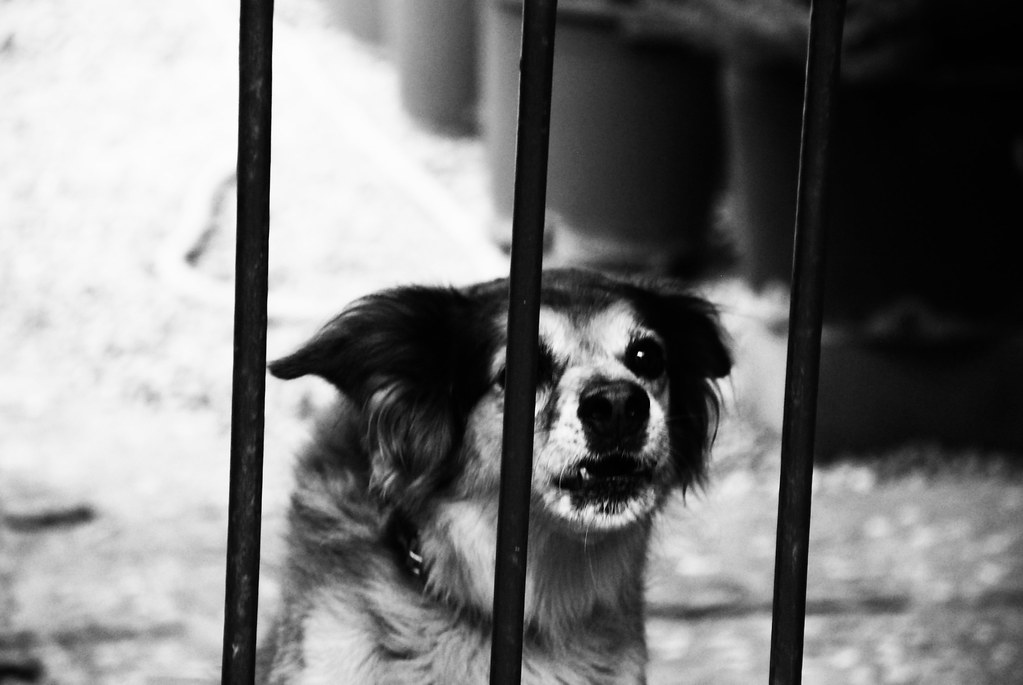Dog owners and animal lovers have long noticed that smaller dog breeds tend to be more energetic, bold, and sometimes even aggressive compared to their larger counterparts. This observation often raises the question: why are smaller dogs generally feistier than bigger dogs? While there are exceptions to this rule, several behavioral, psychological, and evolutionary factors can help explain this phenomenon.
In this guide, we’ll explore the reasons behind the feisty behavior seen in many small dog breeds. We’ll cover theories related to genetics, socialization, and evolutionary adaptation, as well as the role of human influence in shaping small dog personalities. By understanding these factors, dog owners can gain insight into their pet’s behavior and learn how to channel their small dog’s energy in healthy, positive ways.
The “Small Dog Syndrome” Phenomenon
What Is Small Dog Syndrome?
“Small Dog Syndrome” is a term commonly used to describe the array of behaviors often exhibited by smaller dogs, such as excessive barking, growling, jumping, and a bold, even aggressive attitude. These behaviors are usually linked to the dog’s perception of its surroundings and its desire to assert itself, often in ways that seem exaggerated compared to larger dogs. Although not a medical condition, Small Dog Syndrome highlights certain traits in small dogs that make them appear more aggressive or defensive.
Small Dog Syndrome isn’t specific to any one breed but can be found across many smaller dog breeds, such as Chihuahuas, Dachshunds, and Pomeranians. The behaviors associated with this syndrome are often reinforced by both the dog’s instinct and the way it is treated by owners and other people. Understanding the root causes of Small Dog Syndrome can help in addressing these behaviors and promoting healthier interactions.
Why Small Dog Syndrome Occurs
Small Dog Syndrome may result from several factors, including natural instincts, personality traits, and the way people interact with small dogs. Smaller dogs may feel more vulnerable due to their size and perceive larger animals or unfamiliar people as potential threats. This vulnerability can lead them to adopt defensive or aggressive behaviors to protect themselves. Additionally, small dogs often receive different treatment from their owners; for instance, they might be picked up more frequently or allowed to behave in ways that wouldn’t be acceptable for larger dogs, inadvertently reinforcing bold or dominant behavior.
Evolutionary Reasons for Feistiness in Smaller Dogs
Adaptation and Survival Instincts
Historically, even smaller wild canines had to adopt certain behaviors to survive in challenging environments. Though most modern small dogs are domesticated, their ancestors were wild animals that relied on sharp instincts for survival. These smaller animals had to compensate for their size by being alert, resourceful, and sometimes aggressive to ward off predators and compete for food and territory.
While domesticated, many small dog breeds retain these survival instincts. When a small dog sees a larger dog, it may interpret this as a threat and respond with barking, growling, or even lunging. These behaviors may stem from the innate drive to protect itself, a legacy of its wild ancestors who had to adopt a bold stance to ensure survival.
Selective Breeding
Throughout history, humans have selectively bred dogs to emphasize certain traits, and this applies to smaller dogs as well. Many small dog breeds were developed as watchdogs or ratters—tasks that required bravery, persistence, and quick reflexes. Breeds such as the Miniature Pinscher and Jack Russell Terrier were specifically bred for alertness and tenacity, qualities that have remained prevalent in these breeds to this day.
In addition to breeding for particular physical traits, like size and coat type, breeders also selected for temperament. If a small dog had a bold, confident personality, it was more likely to thrive as a ratter or watchdog and pass down these traits. Over generations, this selective breeding led to a higher prevalence of assertive or even aggressive behaviors in smaller dog breeds.
Psychological and Social Influences
Compensating for Size
Another theory for small dog feistiness involves compensatory behavior. Smaller dogs are often aware of their size disadvantage, which may lead them to overcompensate by adopting a more assertive demeanor. By displaying behaviors such as barking or growling, they signal to others that they are not to be underestimated. This behavior, often known as “Napoleon Complex” in humans, can create a sense of confidence or bravado in small dogs as a way of compensating for their physical limitations.
This size compensation isn’t unique to dogs; it is seen across the animal kingdom. Many smaller animals adopt defensive behaviors to ward off larger predators or competitors. For instance, small birds like chickadees and sparrows will “mob” larger birds of prey to protect their nests, making up for their size disadvantage through aggression and boldness. Small dogs often mirror this behavior when they encounter larger dogs or unfamiliar people, using feistiness as a strategy to assert dominance or protect themselves.
Owner Influence on Small Dog Behavior
Human behavior plays a significant role in shaping the personalities of small dogs. Many owners unintentionally reinforce feisty behavior by treating small dogs differently than they would larger breeds. For example, when a small dog barks at a larger dog or jumps up on people, the owner may ignore it or find it amusing, rather than correcting the behavior. Over time, the dog learns that these behaviors are acceptable and may even interpret them as effective ways to get attention or achieve desired outcomes.
Additionally, some owners tend to overprotect small dogs, keeping them close or picking them up at the first sign of a perceived threat. While this may seem like a natural response to protect a small dog, it can actually heighten the dog’s sense of vulnerability and reinforce defensive behaviors. Over time, these repeated interactions shape the dog’s personality, making it more likely to adopt a feisty or confrontational demeanor as a way of asserting itself.
Differences in Socialization and Training
Less Consistent Training and Socialization
Small dogs are often subject to inconsistent training and socialization compared to larger dogs. Owners of larger dogs tend to place a greater emphasis on obedience training and socialization from a young age, as large dogs can be more challenging to control and pose a greater risk if they display aggressive behaviors. However, smaller dogs, because of their size, may not be seen as a potential threat, leading some owners to overlook basic training and socialization.
When small dogs are not properly socialized with other animals or people, they may develop defensive or reactive behaviors, often barking or showing aggression out of fear. This lack of exposure to different environments can result in heightened anxiety, as the dog may not know how to handle new experiences in a calm, relaxed manner. Consistent socialization and training are essential for any dog, regardless of size, as they help instill confidence and teach appropriate behavior in different situations.
Behavioral Conditioning
Behavioral conditioning also plays a role in the feistiness of small dogs. Many smaller dogs receive different treatment and are often given more leniency when it comes to behavior. For example, a small dog that jumps on guests or demands food from the table may be tolerated, while a larger dog exhibiting the same behaviors would likely be corrected. Over time, this leads to behavioral conditioning in which small dogs learn that assertive or even aggressive behaviors are acceptable, further reinforcing their feistiness.
Behavioral conditioning extends to how small dogs perceive their owners’ responses. If an owner rewards barking or attention-seeking behaviors, the dog learns to continue these actions, associating them with positive reinforcement. By setting consistent boundaries and reinforcing calm behavior, owners can help manage and reduce feisty tendencies in their small dogs.
Addressing Feisty Behavior in Small Dogs
Consistent Training
Training is essential for managing and reducing feisty behavior in small dogs. Just as with larger dogs, small dogs benefit from obedience training that teaches them commands such as sit, stay, and quiet. Positive reinforcement, like treats and praise, encourages good behavior, while ignoring or redirecting unwanted behaviors helps to reduce them over time. Regular, consistent training not only curbs feisty behavior but also improves the bond between the dog and its owner, instilling a sense of trust and security.
Socialization with Other Dogs
Socialization is particularly important for smaller dogs to help them feel comfortable around other animals, especially larger dogs. By gradually exposing them to different environments, people, and other animals, small dogs learn to adapt and feel less threatened. Puppy classes, dog parks, and supervised playdates with well-behaved dogs can be excellent opportunities for socialization. The more familiar a small dog is with various situations, the less likely it is to resort to defensive or aggressive behaviors.
Setting Boundaries and Providing Structure
Setting clear boundaries and providing structure helps prevent small dogs from developing unwanted behaviors. Establishing routines, maintaining consistent rules, and avoiding overindulgence are essential components of responsible pet ownership. Small dogs need to understand their place within the household and follow the same rules as larger dogs. When small dogs are treated consistently and with clear expectations, they are less likely to develop feisty behaviors, becoming more secure and well-adjusted.
Conclusion
The feistiness commonly observed in smaller dogs is a result of various factors, including evolutionary instincts, behavioral conditioning, and human influence. While their smaller size might make them more prone to defensive behaviors, proper training, socialization, and clear boundaries can help manage these tendencies. By understanding the factors that contribute to small dog syndrome, owners can take steps to create a balanced and positive environment for their small dogs, encouraging calm behavior and confidence.
Whether rooted in survival instincts or shaped by selective breeding, the spirited nature of small dogs is part of what makes them unique companions. With the right approach, owners can channel their small dog’s energy in healthy ways, fostering a strong bond and ensuring a happy, well-behaved pet.




